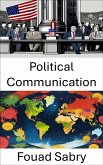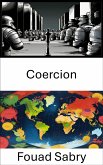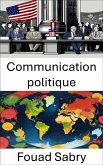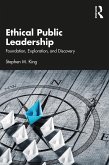Unlock the intricate world of power dynamics with Social and Political Power, an essential resource in the Political Science series. This book offers a deep understanding of how social hierarchies and political influence shape governance and society. It covers leadership, psychological manipulation, and the nuances of power in various social structures. Discover key strategies and insights into the forces that drive societal change.
1: Power (Social and Political): Understand how social and political power influences decisions and societal frameworks.
2: Persuasion: Learn how persuasion shapes public opinion and policymaking.
3: Social Psychology: Explore social psychology's role in political behavior.
4: Leadership: Investigate how leadership styles affect political and social systems.
5: Interpersonal Relationships: Examine how personal dynamics influence political and social power.
6: Attitude (Psychology): Understand how attitudes form and shape political and social actions.
7: Abuse: Discover the impact of power abuse on individuals and institutions.
8: Social Influence: Analyze how social influence drives political movements and societal change.
9: Locus of Control: Examine how control affects responses to social and political forces.
10: Political Psychology: Understand cognitive processes behind political beliefs and actions.
11: Social Dominance Orientation: Learn about social dominance's role in perpetuating hierarchies.
12: Social Psychology (Sociology): See how societal structures influence psychological behaviors.
13: Compliance (Psychology): Explore compliance in social and political settings.
14: French and Raven's Bases of Power: Study French and Raven's power bases and their applications.
15: Manipulation (Psychology): Investigate psychological manipulation's role in personal and political relationships.
16: Traumatic Bonding: Understand traumatic bonding's impact on power and relationships.
17: Interdependence Theory: Explore mutual influence between individuals and institutions.
18: Conflict (Process): Analyze conflict's role in power struggles and resolutions.
19: Abusive Power and Control: Examine the destructive effects of abusive power on governance.
20: Machiavellianism (Psychology): Study Machiavellianism's role in political manipulation.
21: Dual Strategies Theory: Understand dual strategies theory in navigating power dynamics.
This book goes beyond basic concepts, offering deep insights into power in both overt and subtle forms. Gain a thorough comprehension of political science and the social mechanisms that shape power interactions in modern society.
1: Power (Social and Political): Understand how social and political power influences decisions and societal frameworks.
2: Persuasion: Learn how persuasion shapes public opinion and policymaking.
3: Social Psychology: Explore social psychology's role in political behavior.
4: Leadership: Investigate how leadership styles affect political and social systems.
5: Interpersonal Relationships: Examine how personal dynamics influence political and social power.
6: Attitude (Psychology): Understand how attitudes form and shape political and social actions.
7: Abuse: Discover the impact of power abuse on individuals and institutions.
8: Social Influence: Analyze how social influence drives political movements and societal change.
9: Locus of Control: Examine how control affects responses to social and political forces.
10: Political Psychology: Understand cognitive processes behind political beliefs and actions.
11: Social Dominance Orientation: Learn about social dominance's role in perpetuating hierarchies.
12: Social Psychology (Sociology): See how societal structures influence psychological behaviors.
13: Compliance (Psychology): Explore compliance in social and political settings.
14: French and Raven's Bases of Power: Study French and Raven's power bases and their applications.
15: Manipulation (Psychology): Investigate psychological manipulation's role in personal and political relationships.
16: Traumatic Bonding: Understand traumatic bonding's impact on power and relationships.
17: Interdependence Theory: Explore mutual influence between individuals and institutions.
18: Conflict (Process): Analyze conflict's role in power struggles and resolutions.
19: Abusive Power and Control: Examine the destructive effects of abusive power on governance.
20: Machiavellianism (Psychology): Study Machiavellianism's role in political manipulation.
21: Dual Strategies Theory: Understand dual strategies theory in navigating power dynamics.
This book goes beyond basic concepts, offering deep insights into power in both overt and subtle forms. Gain a thorough comprehension of political science and the social mechanisms that shape power interactions in modern society.
Dieser Download kann aus rechtlichen Gründen nur mit Rechnungsadresse in A, B, BG, CY, CZ, D, DK, EW, E, FIN, F, GR, H, IRL, I, LT, L, LR, M, NL, PL, P, R, S, SLO, SK ausgeliefert werden.









